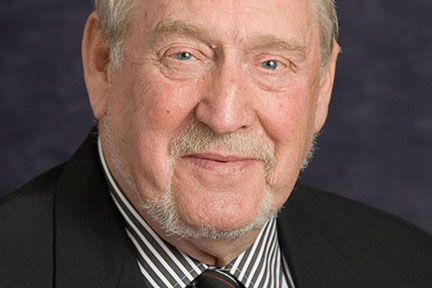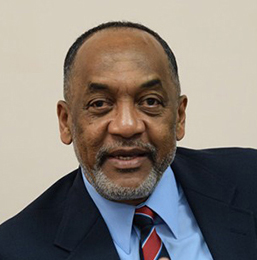Australian mining company Troy Resources has complained to President David Granger about criticisms levelled against it by Environmental Protection Agency (EPA) Director Dr Vincent Adams, which it has dubbed excessive and unfair—claims Adams has dismissed as seemingly personal and intimidatory.
“In a letter to His Excellency President David Granger, we were forced to plead our case for an investigation into the excessive and unfair criticisms levelled against our company. These actions caused us and continue to cause us reputational and financial damage,” Troy said in a statement, following the circulation of the correspondence and Adams’ response.
“This is/was a correspondence between a company, one of its regulators, and the regulator’s line Minister H.E. The President. Accordingly, the company does not believe that notwithstanding that the press may have obtained copies of sensitive correspondence (however these may have been obtained) that it would be necessary or appropriate to comment publicly on these. In the circumstances, the company prefers not to make any comment on the matter,” it added.

In April of this year, Ken Nilsson, Managing Director of Troy Resources, wrote to Granger and outlined what his company believes was unjustified penalties against it when there was a fuel spill of 5,000 litres.
Stabroek News reported in late March that Troy Resources was fined $1 million by the EPA for the spillage of some 5,000 litres of fuel at its Karouni worksite and it had been ordered to pause works to emphasise safety measures.
It was the company, according to a letter seen by this newspaper, which provided information about the spill to the EPA through a letter dated March 23rd 2020. As part of the requirement for a permit, persons/organisations have to sign that they will report all accidents and environmental hazards. The company had said that it was at a Rubis fuel farm that the accident occurred.
The EPA levied fines on both RUBIS and Troy for equal amounts.
Troy’s CEO told the president that the company was fined even before it could plead its case and the EPA refused to give the company the opportunity to do so and “Dr. Adams’ unilateral decision that TRGI intentionally and recklessly caused serious environmental harm while instituting the maximum fine to both TRGI as well as its contractor Rubis, is contrary to both the Act and principles of natural justice”.
Adams would reply to Nilsson saying that it was one of many “untruths” he told the president, as he justified the fines.
“Sir, for your edification, the Act provides that ‘Every person who causes serious environmental harm…intentionally or recklessly…shall be liable to the penalties prescribed’, and the EPA ‘may give that person a notice offering to discharge liability…by payment of two-thirds of the minimum prescribed penalty within 28 days,’” he wrote.
Adams said that the penalties are based “upon inputs from relevant EPA sector are, such as mining, and the legal unit of the EPA. “It is most certainly not a unilateral decision of the Executive Director as you maliciously alleged,” he said.
Adams has said that fines are based on what specific permits and the law allow.
Demerara Distillers Limited (DDL) was earlier this year fined $1.6 million for a spill of 30,000 litres in a second incident that also contaminated the waterways in Diamond and saw a discharge into the Demerara River. In Linden, Region 10, at Lynwill fuel distribution, there was a 60,000 litres spill and the company was fined $1.6 million. This company had a previous substantial spill in 2016 as well which was also investigated by the EPA. Exxon has had three hydraulic oil spills and it and its contractor were fined a maximum of $100,000 (US$500) each for the three infractions, which occurred in March, April and May of this year.
While Troy also told the president that it believed that Environmental, Safety and Health (ES&H) scrutiny is unacceptable and “breaches the confidentiality requirements of our dealings with your government’s agencies,” Adams has said that his agency has “no confidentiality arrangements” with Troy Resources. He further added that contrary to what Troy believes, “the EPA is bound by the law and the Escauzu Agreement to maintain disclosure with the public, including particulars of environmental incidents.”
Adams said that he felt it was “rank eye-pass” for Nilsson to “feel so imperious to dictate to a sovereign nation, what is unacceptable, what must be the government’s behaviour, and what is outside the EPA’s mandate.”
Troy Resources has been the recipient of the Government of Guyana’s highest ministerial commendation for workplace safety in the last two years.
Last year, however, one of Troy’s employees died on site and the company was cleared of responsibility from the Ministry of Social Protection.
Five says before the fuel spill, TRGI had also facilitated an EPA compliance visit and was not informed of any areas of concern
Adams also said when Troy asserted that the good relationship between TRGI and the EPA no longer exists, he believes that the position represents scare and intimidatory tactics. “You should be concerned that TRGI is the only company which appears to employ intimidation, bullying and scare tactics, in resisting the agency’s newly implemented higher standards,” Adams stated.
He said that many multinational companies across the globe have experienced much worse ES&H mishaps and have regained their footing as they took the setbacks as lessons learned to improve their practices and that Troy could learn from this instead of “resorting to crying foul to the government”.






